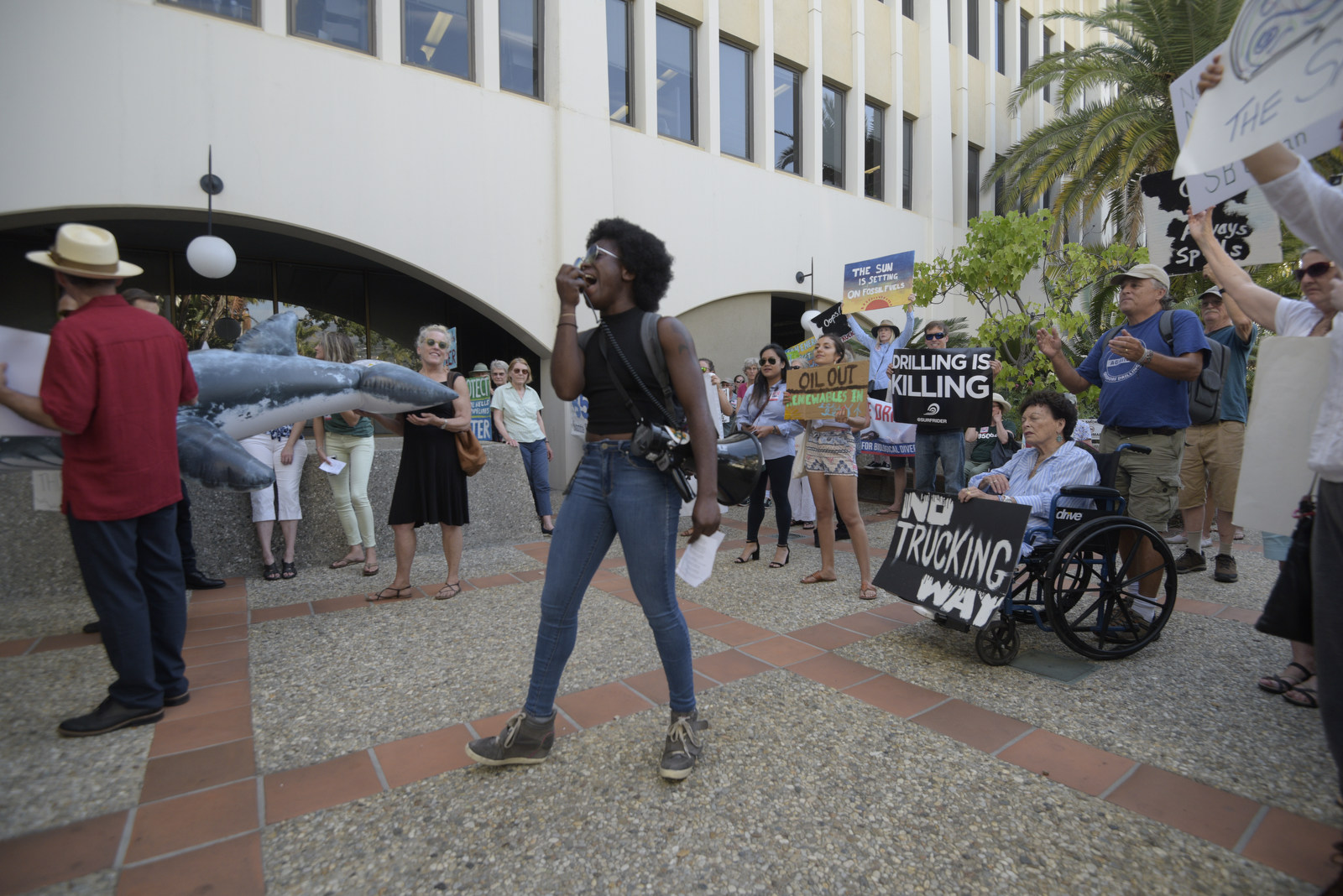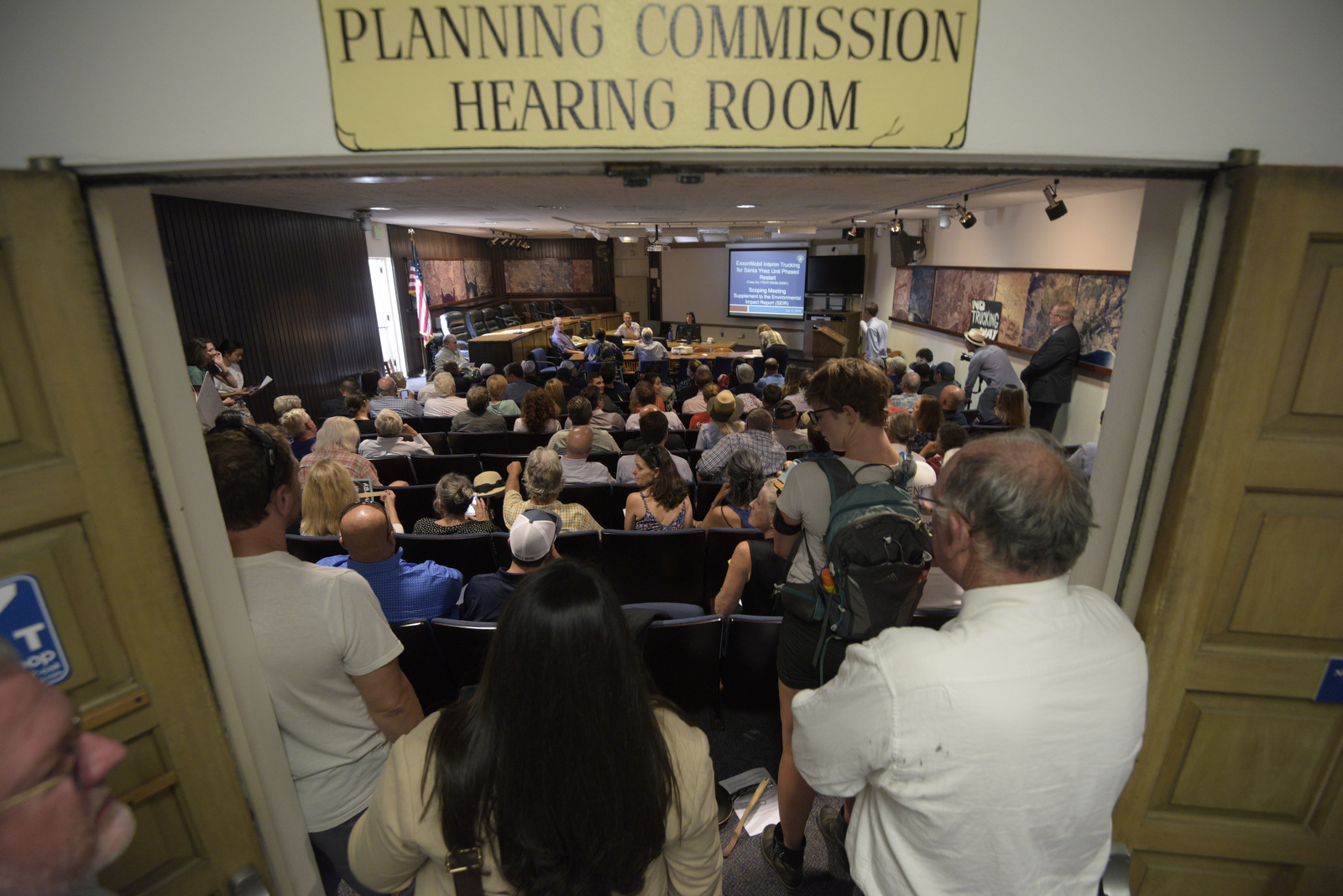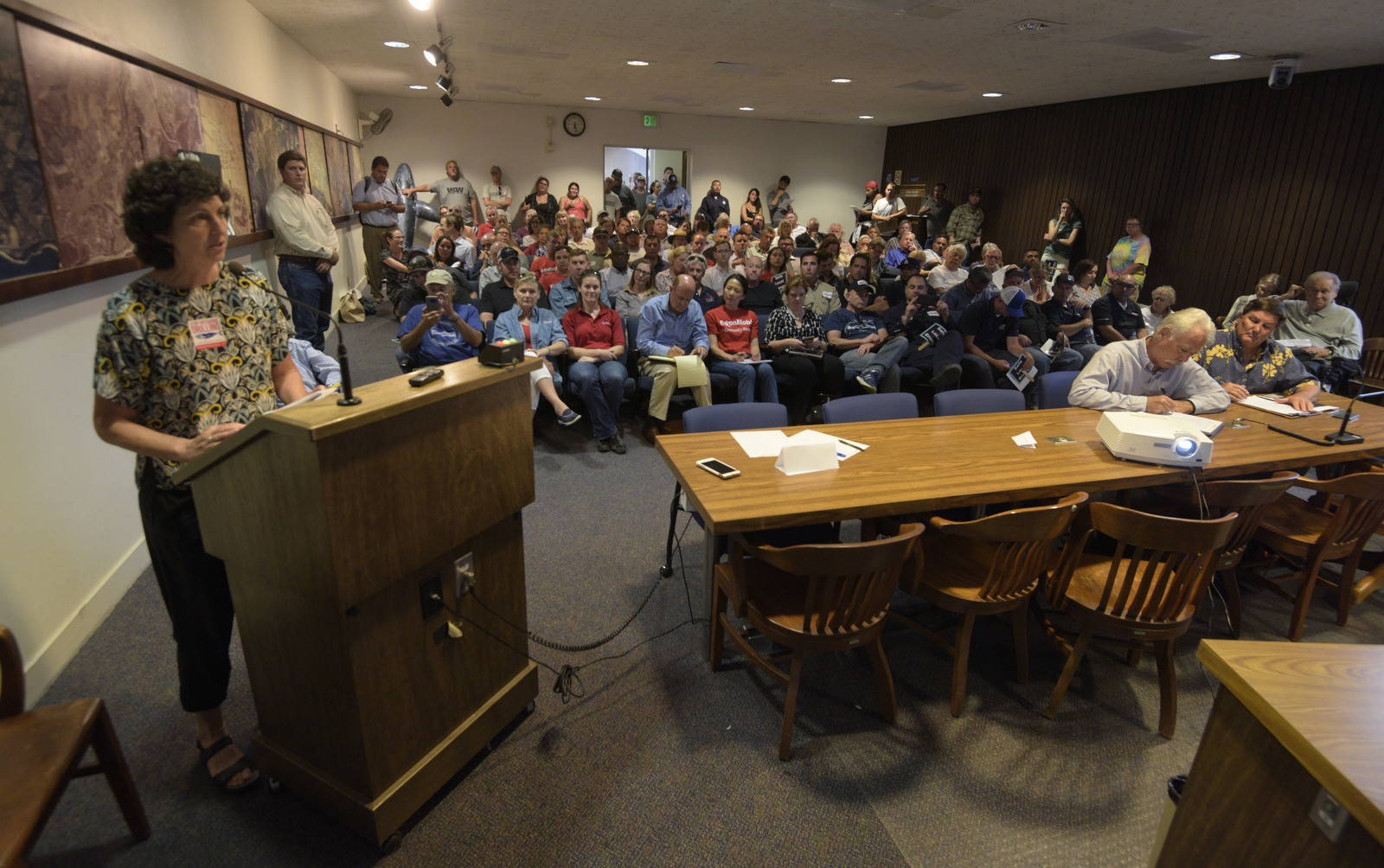
Several dozen anti-oil protesters gathered in front of the Santa Barbara County Administration building Wednesday afternoon to speak out against ExxonMobil’s proposal to restart its three drilling platforms off the Santa Barbara coast. The company’s proposal includes the production of 10,000 to 12,000 barrels per day that would be trucked from the Las Flores Canyon Facility to Santa Maria and Maricopa via highways 101 and 166. Up to 70 trucks per day would be rotating between the three locations around the clock.

Production from all southern Santa Barbara County oil platforms came to a screeching halt in May 2015 with the Refugio Oil Spill, when a main transportation pipeline owned by Plains All American Pipeline ruptured and released more than 142,000 gallons of crude onto the Gaviota Coast. Exxon is seeking a trucking permit for seven years, or until the pipeline is fixed. The company has said the trucking plan will support local jobs and that the deliveries would be safe.
Wednesday’s demonstration, organized by a number of regional environmental groups, was held an hour ahead of the 6 p.m. county scoping hearing which allowed the public an opportunity to speak for or against the project’s environmental impact report, which looks at issues concerning air quality, traffic impacts, and potential spill hazards.

Speakers recalled the Refugio spill. “It’s important to keep in mind what just happened in 2015 with the pipeline, which is supposed to be safer,” said Linda Krop, chief counsel of the Environmental Defense Center. “Trucks are known to be dangerous,” she said. “The route is very windy and extremely narrow.” With a number of recent climate-related disasters in Santa Barbara, others asked the county to take climate change into account. Overall, their message was clear: The only safe course of action is for the county to deny the project.
A number of Exxon supporters also occupied the filled-to-capacity room. Bob Poole, self-identified as “the oil guy,” reminded attendees that California consumes two million barrels of oil a day, 70 percent of which is imported. “Exxon adheres to the most stringent environmental rules,” said Poole. “The best thing we can do is provide it here.” Richard Atmore, board president of the Coastal Energy Alliance, echoed Poole’s sentiment. Abroad they don’t consider human rights or environmental impacts, he said. “Lets produce it here carefully and safely.”
Kristen Monsell and Blake Kopcho with the Center for Biological Diversity were not convinced. Safety regulations that were put in place under the Obama administration are being rolled back under Trump, they said. “It just increases the danger.”
The county’s Planning Commission and the Board of Supervisors will next consider the proposal early next year.
